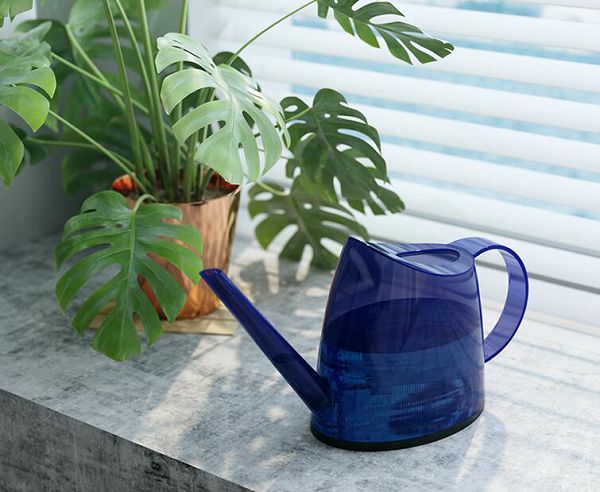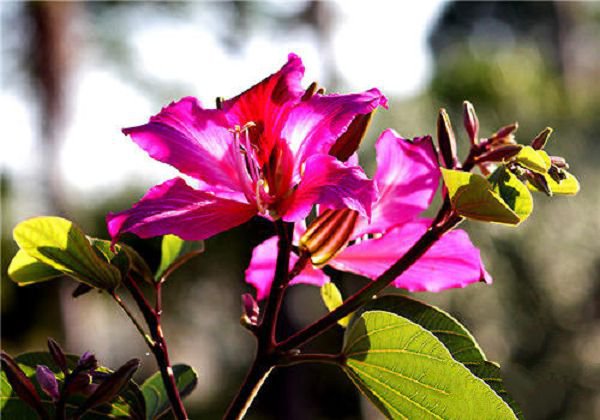What are the key points of watering potted flowers

Watering potted flowers should be just right, first of all, we should understand the natural habits of different varieties of flowers and how much water they need at each stage of growth and development; it also depends on the sunny weather, the level of temperature and humidity, the types of flowerpots, plant size and the texture of potted soil. Potted flowers are watered in the following ways.
1. Water quality
It is best to irrigate with soft water, because the inorganic salts such as calcium and magnesium contained in hard water often bring harm to the normal physiological activities of flowers. Rain Water, river, lake and pond water are called soft water, which are generally weakly acidic or neutral, suitable for watering flowers. At present, tap water and deep well water are commonly used, which are mostly hard water and often contain chloride ions, which is disadvantageous to the growth of flowers. If possible, tap water should be poured into the tank and stored for 5-7 days before use.
2. Water temperature
The watering temperature is not too different from the air temperature at that time. If the water with large temperature difference is suddenly irrigated, the temperature of the root system and soil will suddenly drop or rise, which will hinder the normal physiological activity of the root system, weaken the water absorption and cause physiological drought. Therefore, it is forbidden to water at noon in summer, it is appropriate to water in the morning and evening; it is appropriate to water at noon in winter, the temperature of tap water in winter is often lower than room temperature, and some warm water can be added when in use.
3. Appropriate amount
Master "see wet, see dry", woody flowers and cactus should master the principle of "dry and wet". Most plants grow vigorously and have large evaporation in spring, so they should be watered more. In summer, indoor flowers are watered once every 2-3 days, and outdoors, once a day. Different varieties of flowers should be treated differently. Generally, herbaceous flowers need more water than woody flowers, and southern flowers need more water than flowers in arid areas. Flowers with large leaves, soft texture, smooth and hairless flowers evaporate more and need more water, while flowers with small and leathery leaves need less water. For those dormant and semi-dormant flowers in autumn and winter, it is better to control watering and keep the basin soil dry.
4. Mode
Most flowers like spraying, spraying water can lower the temperature, increase environmental humidity, reduce plant evaporation, wash foliar dust, and improve photosynthesis. Often sprayed flowers, clean branches and leaves, can improve the ornamental value of plants, but blooming flowers and hairy flowers should not spray water.
Related
- What if the leaves of potted flowers turn yellow?
- Florescence Control of several Flowers
- Anti-freezing technology and post-freezing nursing technology of flowers
- What is the classification of flowers? What are the common methods of flower classification?
- Prevention and control of alkali and acid damage of flowers in courtyard
- Technology of Anti-freezing and restoring growth of Flower seedlings in greenhouse and greenhouse
- How does flower fertilization not hurt the root? Fertilization technology of flowers
- Key points of disinfection in flower greenhouse
- Several pesticides that are banned or used cautiously in flowers
- How to fertilize the flowers that watch the leaves?



